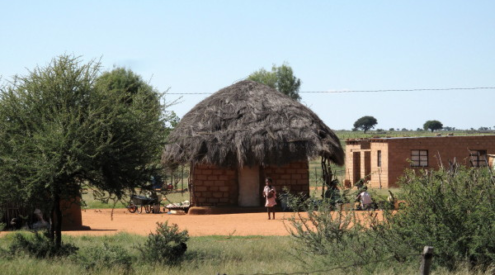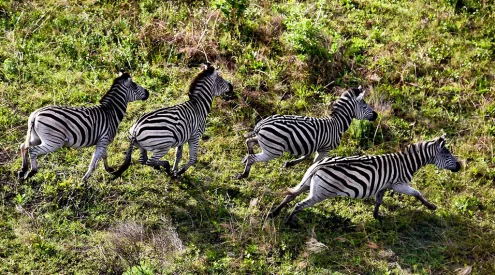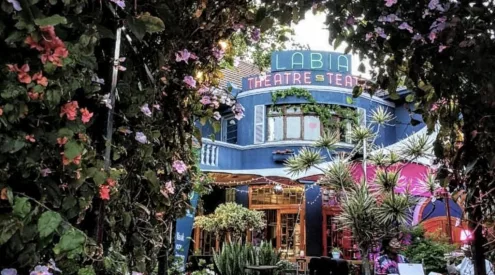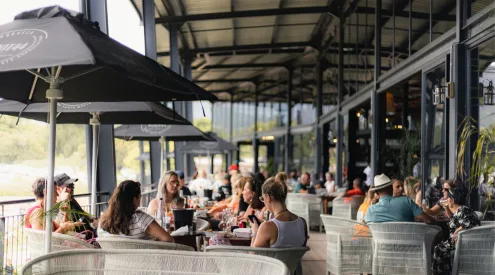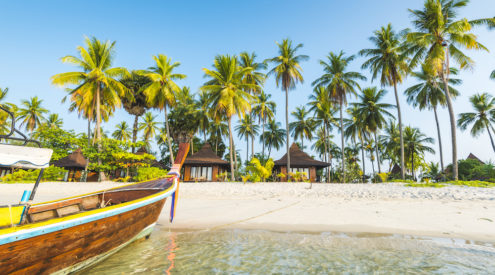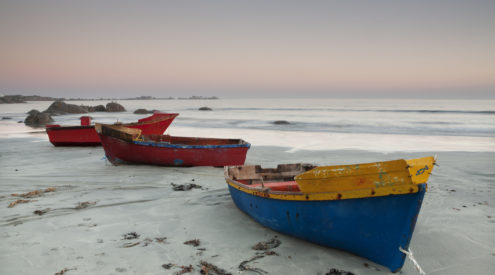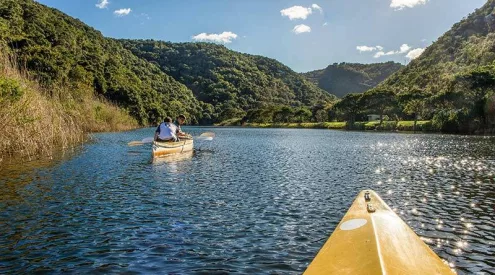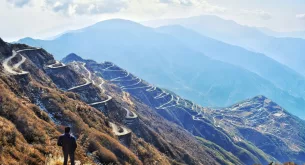Ghana can often feel like a home away from home to African visitors. The sense of ubuntu, rich cultural heritage and the country’s sheer beauty make it a sought-after African destination. Here are 5 things to do in Ghana, the so-called Land of Gold.
1. Go surfing
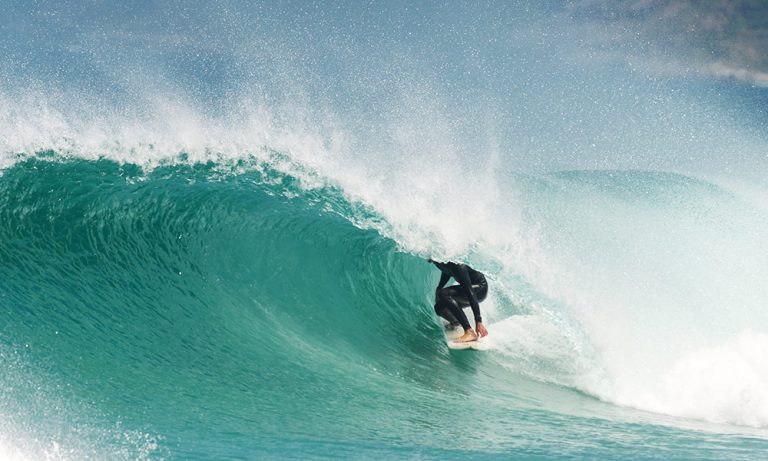
Yes, you read that right. Go surfing. Ghana has plenty of marvellous beaches and great waves.
Brett Davies, a former Rip Curl champion, now runs Mr Bright’s Surf School, and gives lessons seven days a week.
Some of the best beaches in the country are:
- Busua
- Kokrobite
- Muuston
- Tills
- Cape Three Points
- Dixcove Point
- Achenim
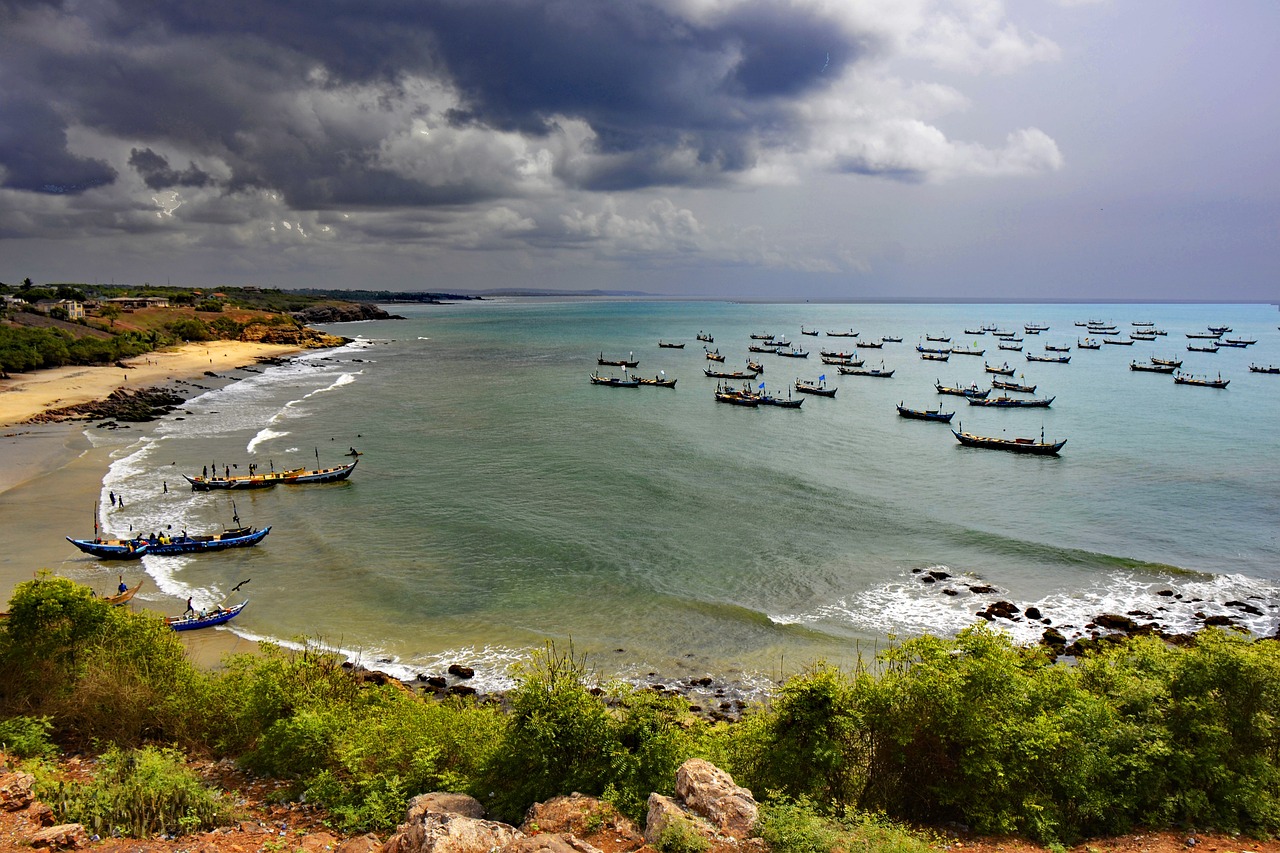
Senya Beraku in central Ghana. Picture: Pexels
Busua is probably the most well-known beach in Ghana. The clear blue waters are surrounded by a fishing village where you can find the locals. The calm waves are perfect for the beginner surfer, but if you are looking for something a little more adventurous you can explore the waters where the tide is called the Black mMamba, located 20 minutes from the beach by paddling.
Website: Mr Bright’s Surf Shop/School, Kokrobite, Accra
Tel: +233 26 431 6053
2. Go fabric shopping
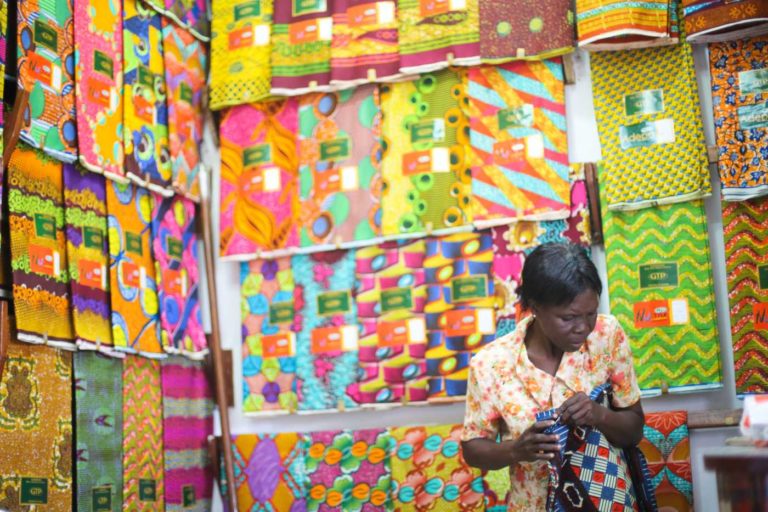
Picture: Yenkassa on Flickr
The streets of Ghana are embroidered with a kaleidoscope of garments worn by locals, most of which were tailored from locally produced fabrics such as the much sought-after kente, originally made with orange thread.
One of my absolute favourite markets to visit is Makola Market on Kojo Thompson Rd, Accra – which looks and feels like legendary Ghanian artist Ablade Glover‘s works of art. Although not bigger than Kejetia Market in Kumasi, you can find everything you need at Makola Market can look daunting at first glance. You need to go in there with a plan.
Some of the most popular fabrics to ask about:
Kente
Kente comes from the Akan word for “basket” because of the basket-like weaving pattern. It is also called nwentoma meaning “woven cloth” in Twi.
Fugu
Also known as Bun-nwo, Bana, batakari, Dansika or Banaa is a plaid smock originating from northern Ghana, According to Edward Asare the cloth used to be reserved for kings and princes in ancient times but is now popular across Ghana, even considered by some as the “Ghanaian suit.”
Adinkra
The cloth was initially made for royals and spiritual leaders to be worn to funerals and other special occasions. It gets its name from the Adinkra symbols printed on it and can be red, dark brown or black, as dictated by the occasion and the role of the wearer at the occasion.
Address: Osc 384 Makola Shopping Mall, Kojo Thompson Rd, Accra
Tel: +233 24 964 4077
3. Learn about Ghana’s history

Kwame Nkrumah Memorial Park in Accra contains the mausoleum of Ghana’s first president. Picture: David Stanley on Flickr
Ghana became the first African country to gain its independence from British rule in 1957 and the Kwame Nkrumah Memorial Park and Mausoleum is the epicentre of it all. The Mausoleum is the final resting place of Ghana’s first President and Africanist Dr Kwame Nkrumah and hosts rare artefacts relating to Ghana’s independence tours at the park giving visitors an in-depth history of the Sub-saharan struggle for independence.
Each year on 6 March, Ghana’s Independence Day, a parade takes place in Black Star Square, Accra’s civic hub. This is where you’ll find the Independence Arch, a towering structure representing Ghana’s struggle for independence from imperial British rule, which is just up the road from Kwame Nkrumah Memorial Park.
4. Live it up with the nightlife and festivals
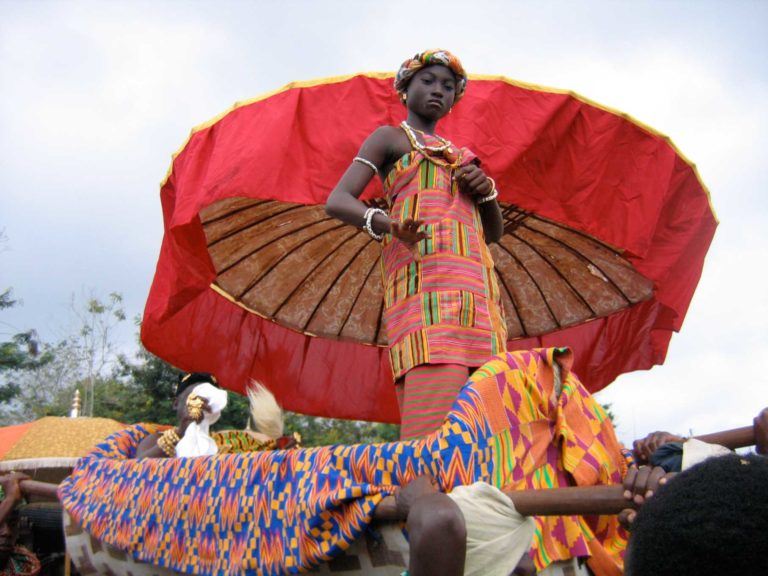
Picture: nenie on flickr
Ghana hosts some of the best festivals on the African continent (more than 200 annually), and the nightlife is – for a lack of a better word – a total vibe. In short, prepare to dance your socks off. The music will get you up from your seat and moving to the beat. Plus, the wholesome atmosphere makes the spaces safe and fun to engage with locals too.
A cool spot to get your music, drinks and food from is Republic Bar and Grill. They play house music sets every Thursday from 10 pm until late and host more recurring events like Republic Paint nights on Mondays and Karaoke Republic on Tuesdays.
One event to keep an eye out for year-round is the Asante Akwasidae festival held in Kumasi, taking place roughly every six weeks on a Sunday. The festival is held to honour the traditional Ashanti people. Other festivals worth noting towards the end of the year are Afro Nation and Panafest.
5. Eat with the locals

Picture sshreeves on flickr
Tourists tend to do, well … touristy things, like stay at hotels and eat at restaurants. If you want to experience Ghana in its fullness, then you need to be amongst its people. While the restaurant food is sumptuous and delectable, getting your local food straight from the supplier feels different. Ghana’s food is as diverse as its people, with every ethnic group having a special dish of their own.
READ: Proudly African: five unorthodox ways to prepare “pap”
Here are some dishes you should try.
Waakye (pronounced as “wa-chee”)
The recipe is a medley of beans and rice and was originally a Northern dish, but it can now be found almost everywhere on the streets of Accra. At its core, the dish is a creative rice and beans combination. This humble dish, which is eaten any time of the day is cooked with red sorghum leaf sheath, known as waakye leaves, which gives it a burgundy (reddish-brown) colour.
It is sold by street-side vendors, wrapped in banana leaves and served with multiple of the following sides; lamb stew, spaghetti, avocado, shito (fish sauce), kelewele (fried plantain), fried fish, garri fotor, vegetable salad, egg, meat or fish.
Red-red
Red-red is a filling traditional dish that consists of cowpea beans boiled to make a broth, served with palm oil and soft, fried plantains. This slow-cooked black-eyed peas stew is the ultimate belly warmer to keep you toasty and full. Red-red is also a perfect choice for vegetarians as no animal products are used.
Fufu and goat light soup
Fufu is a staple food across West Africa but in Ghana, it is made by pounding a mixture of boiled cassava and plantains into a soft sticky paste to go along with aromatic and spicy tomato soup.
Goat Light Soup is an amazing meal with a unique taste. Filled with hot pepper, this makes the soup spicy and tasty.
Follow us on social media for more travel news, inspiration, and guides. You can also tag us to be featured.
TikTok | Instagram | Facebook | Twitter
ALSO READ: 5 incredible sights to visit in Ethiopia

